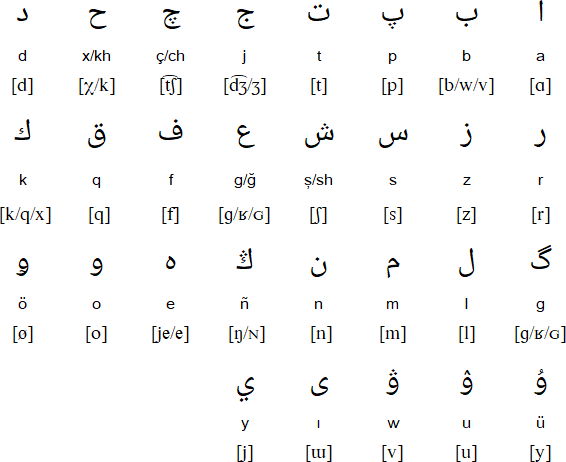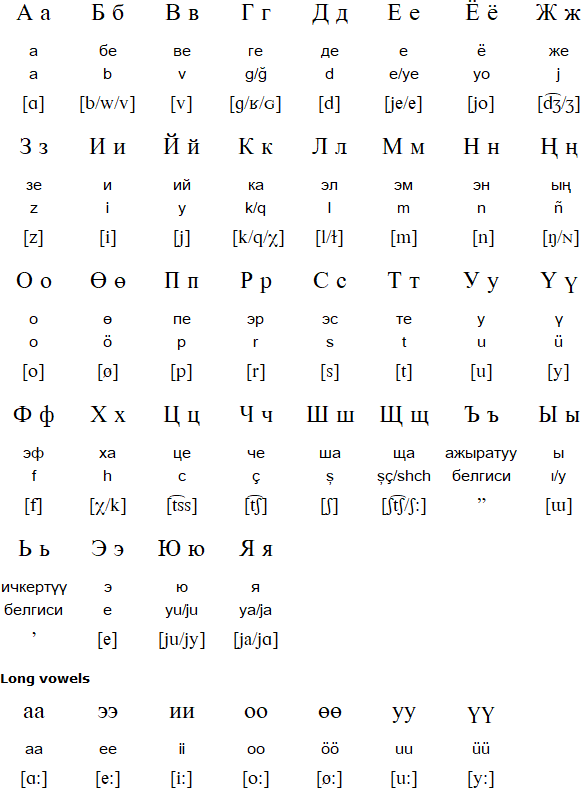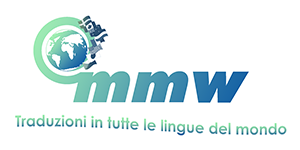Kyrgyz (Kyrgyz tili / Кыргыз тили /
قىرعىز تىلى)
Kyrgyz or Kirghiz is a Turkic language with about 4.5 million speakers
mainly in Kyrghyzstan, and also in China, Afghanistan, Kazakhstan, Tajikistan,
Turkey, Uzbekistan, Pakistan and Russia. It is official language in Kyrgyzstan,
together with Russian, is closely related to Altay and is mutually intelligible
with Kazakh.
Kyrgyz was written a version of the the Perso-Arabic
script until 1928, then with the Latin alphabet from 1928 and 1940, and with
with the Cyrillic alphabet from 1940 onwards, though some people, especially
in China, still use the Perso-Arabic script. After Kyrghyzstan became independent
in 1991 there was a plan to re-introduce the Latin alphabet, but it has yet
to be implemented.
Arabic alphabet for Kyrghyz
(قىرعىز الفاۋىتى)

Cyrillic alphabet for Kyrghyz (кыргыз алфавити)

Notes
- Kyrgyz has vowel harmony: э, и, ө & ү are front vowels, and а, ы, о & у are back vowels
- Before or after back vowels к = [q], г = [ɢ~ʁ] and ң = [ɴ], and before or after front vowels к = [k], г = [g] and ң = [ŋ], and when surrounded by front vowels г = [ɣ] . When between back vowels к = [χ] and г = [ʁ], e.g. кыргыз [qɯr’ɢɯz].
- л = [ɫ] before and after back vowels
- ж = [ʒ] in Russian loanwords, e.g. журнал [ʒur’nɑɫ]
- Letters in parenthesis are only used in Russian loanwords. Initial е = [je] only appears in Russian loanwords.
- ю = [jy] between front vowels
Sample text in Kyrghyz
Arabic alphabet
باردىق ادامدار ۅز بەدەلىندە جانا ۇقۇقتارىندا ەركىن جانا تەڭ ۇقۇقتۇۇ بولۇپ جارالات.۔ الاردىن اڭ-سەزىمى مەنەن ابئيىرى بار جانا بئرى-بئرىنە بئر تۇۇعاندىق مامئلە قىلۇۇعا تئيىش.
Cyrillic alphabet
Бардык адамдар өз беделинде жана укуктарында эркин жана тең укуктуу болуп жаралат. Алардын аң- сезими менен абийири бар жана бири-бирине бир туугандык мамиле кылууга тийиш.
Transliteration
Bardık adamdar öz bedelinde jana ukuktarında érkin jana teñ ukuktuu bolup jaralat. Alardın añ-sezimi menen abiyiri bar jana biri-birine bir tuugandık mamile kıluuga tiyiş.
Translation
All human beings are born free and equal in dignity and rights. They
are endowed with reason and conscience and should act towards one another
in a spirit of brotherhood.
(Article 1 of the Universal Declaration of Human Rights)
